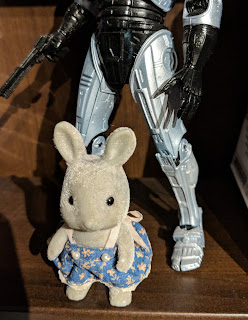Love in (Teen) Literature
This is the first in a trial series of pieces from a more personal point of view, each focusing on a subject related to reading or books, but not necessarily on one specific work. Comments are encouraged!
I've been thinking recently about the controversy surrounding the Twilight novels. You can slam them for being badly written, or for warping the archetype of the vampire, but some of the more interesting commentaries I read were from people worried about the message absorbed by young girls. Bella is a doormat, and apparently the later books are even more troubling in their messages about love:
Simmons, an educator who specializes in raising girls' self-esteem, lays out what parents and teachers are up against. "Among the cringe-worthy morals of this story: When you're in love, the only thing that matters in life is your man. If you get dumped, your life is over, so feel free to act suicidal to get him back. Even if he tells you he never wants to see you again, manipulation and game-playing are effective ways to get his attention. Your friends are only ornaments; just kick them to the curb when he comes back." -http://www.salon.com/life/broadsheet/feature/2009/12/02/new_moon_girls/index.htmlNow, I think the books are dreck, but I mostly trust teenagers to not model their lives directly on fictional characters. Every generation has the 'oh no pop culture is ruining our children' concerns. At least it's a book, I suppose (although the above commentary was inspired by the movie.)
All that is really just a preface, to say that I have been thinking about the messages about relationships I picked up as a kid/teen from all the reading I was doing at the time.
On the more YA side I read a lot of Lloyd Alexander, which is maybe where I picked up those silly notions of people developing their own personalities before committing to a relationship. See: Castle of Llyr, Taran Wanderer, The Westmark Trilogy. On the other hand, Redwall has a lot of sweetheart romance, where the characters are smitten with each other from the start and get together at the end.
Now, lets also remember that YA wasn't quite the genre it is now, so I was reading mostly “adult” novels as a teenager.
I read a lot of Pern books. There's some pretty weird stuff in there about relationships. Remember how the dragonriders have to mate with whoever is bound to their dragon's mate? That was creepy, but happily only a small part of the plot.
Relationships play a larger role in Dragonlance, (which I read a LOT of). The morals seem to boil down to: love/lust makes you stupid, it's entirely possible to love someone who doesn't love you back, but it is not good for your long-term health, and relationships are hard. Not too bad for a series of D&D books.
In some ways the strongest parallel with the Twilight series would have to be with the many novels of dubious literary quality I devoured by Mercedes Lackey.
Lackey's highly romantic fantasy novels are probably where I acquired a taste for the stories where the two main characters are each crazy about the other, but they don't realize it, and if they would just TALK TO EACH OTHER, they would be together and happy and...
Not the point.
Lackey also deserves credit, I suspect, for instilling in a generation of teenage girls a highly sympathetic, if potentially overly protective, attitude toward gay couples. Because of this, I also blame her for most writers of slash fanfiction.
She also spilled much ink over a phenomenon she termed 'lifebonding'. In the Valdemar books, a person who finds (and, as I recall, sleeps with) their fated partner enjoys a deep soul-bonding that includes some level of telepathic connection with their lover. This figures greatly in her tragic romances, naturally. Not every happy couple was lifebonded, but it was like a magical blessing for the chosen.
Several trilogies later, though, perhaps the author had second thoughts. In one storyline, the downsides of lifebonding are clearly spelled out. A main character who has spent much of the book moping about finding his fated partner actually gets to have an honest conversation with a character who is bonded, and it isn't all sunshine and roses. Apparently being that deeply bonded means you can't fight with each other, no matter how much you want to. It's pointed out that most of the people who find lifebonds are powerful mages who are severely mentally unbalanced; so it might be the universe/deity's way of forcefully grounding the personalities of people who could literally level cities if they have a bad day. The character in question comes out of the session with a new appreciation for a 'normal' relationship. Maybe I'm reaching, but perhaps Ms. Lackey saw the potential for trouble if fans took this idea too seriously. That's actually pretty clever on her part.
So: Valdemar: love is sometimes destined and perfect. But you really don't want that kind. Trust me.
Okay, this is over to you, my small but mighty cadre of loyal readers. Were there any novels you read as a teenager that gave you especially bad, or good, ideas about relationships?



Comments
Post a Comment
FYI: Most comments are moderated, and will not appear immediately.